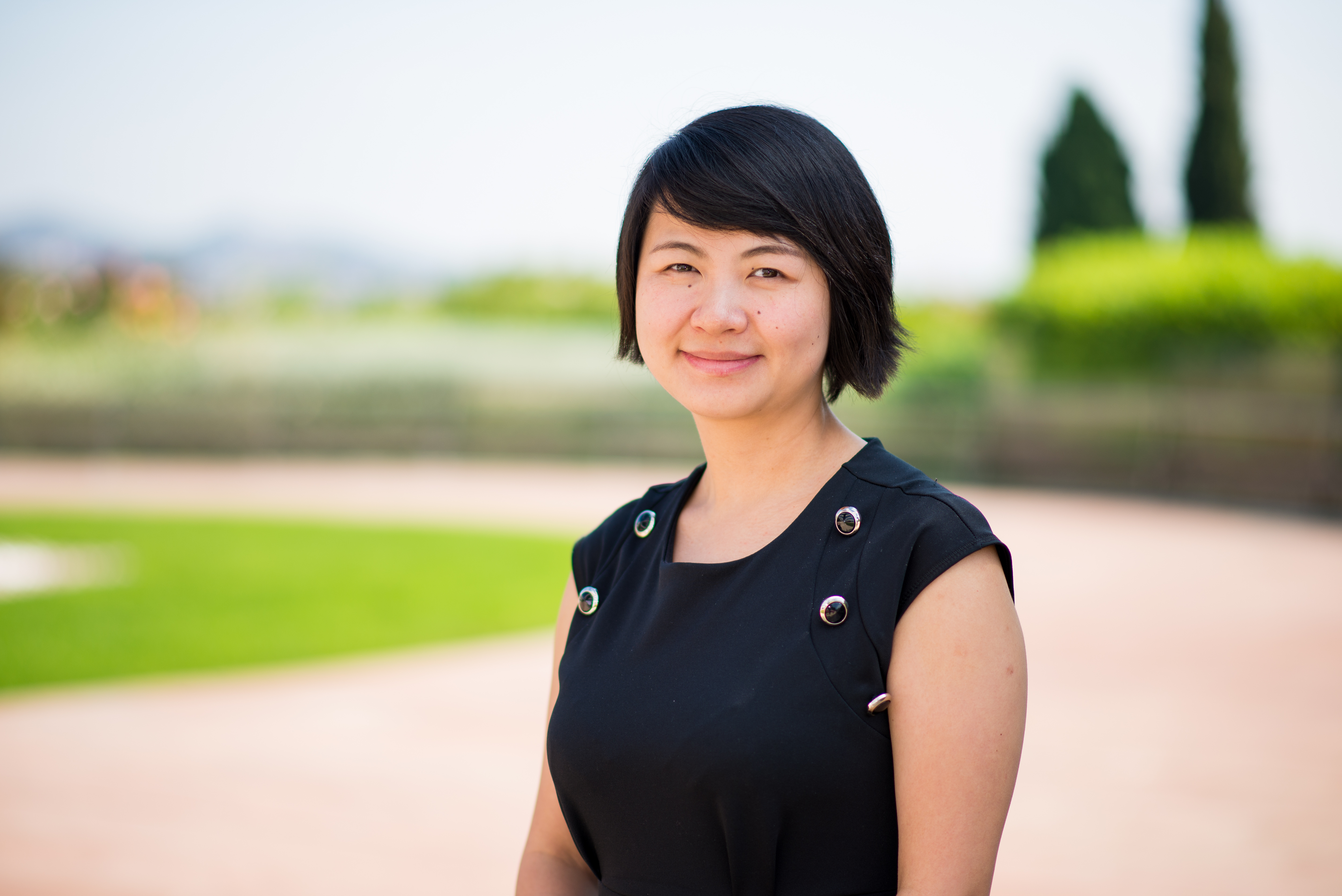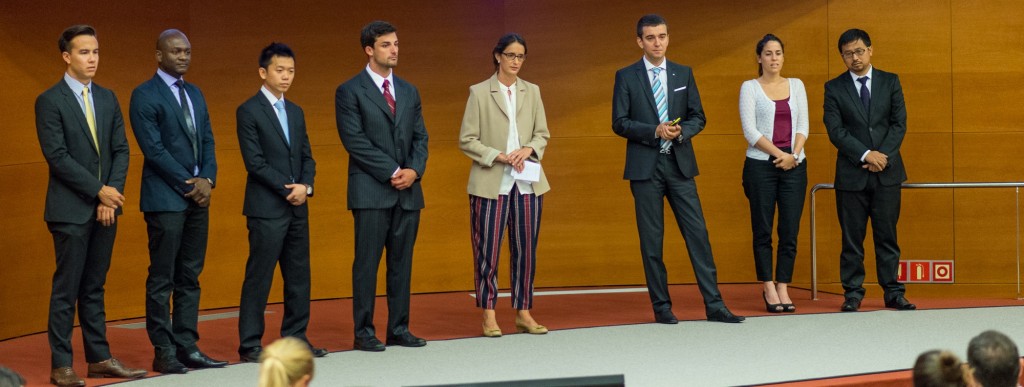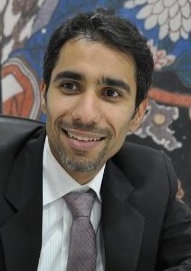Professor Yuan (Echo) Liao is an assistant professor in IESE’s Department of Managing People in Organizations. She holds a PhD in international business from the Beedie School of Business at Simon Fraser University and a master’s degree in psychology from the Chinese University of Hong Kong.
Question: What made you decide to pursue this career and become a professor at IESE?
Answer: While doing my master’s, I found research to be fun and love asking questions and then designing a study to find the answers. That’s how I decided to do a PhD in Canada.
Choosing to come to IESE…..Well, the most important thing for me was the culture at IESE. I came for a campus visit and saw how much people care about others, care about their colleagues, their students, and even the larger society, and I wanted to be a part of that. That’s why I came here.
Q: So Barcelona’s weather had nothing to do with it?
A: Barcelona as a city is definitely an attractive factor. I have lived in great cities before like Vancouver and Sydney, so I’m lucky.
Q: What is a psychological contract?
A: A psychological contract is the employee’s perception of the exchange relationship between him or her and the organization: what he or she has to do for the company and what the company has to do in return. For example, if you get a job and think that the company has to take care of you during hard times, that’s part of your psychological contract, even though it is not explicitly stated in any type of contract with the company.
As you climb up the ladder, you will realize that knowing how to inspire your people not just to perform well, but to push their own boundaries, is a key driver of success
Q: If a gap exists between the employee’s perception and reality, would this likely become a source of anxiety?
A: Yes. People who feel that there is a breach in the psychological contract will behave in many negative ways . They don’t trust the company, have lower commitment and performance, and may even leave the company.
Q: Do these perceptions of psychological contracts vary across individuals?
A: Yes, definitely. People have different perceptions and expectations about norms and contracts depending on their background, culture and education.
For example, in one research project, I studied the differences in perceptions between people in individualistic versus collectivist cultures, and found employees with strong individualistic values perceive the contract as transactional, while employees with collectivistic values perceive the contract as relational.
Q: What are the main challenges that MBAs will face over the next three years?
A: While you are studying at IESE, knowing how to balance the demands of academic work with your social and personal life can be very challenging . I think the key is to better manage your energy and time. Also, the gap between expectations and reality could be another common challenge.
Here at IESE, and also after you graduate, you have to work with people from different countries. How do you work effectively with people who have different working styles, who have different ideas on time and teamwork, and who communicate in different ways? This also might be challenging.
Q: Why is leadership important?
A: (jokingly) You should be able to answer this question yourself, after taking the leadership course.
Why is leadership important? We might not always work with computers or numbers, but we will always work with other human beings. If you want to work effectively with those complicated creatures, you need to acquire some soft skills called leadership. The importance of this kind of skill is probably not very obvious in the early stages of our careers, when we focus more on technical skills. But as you climb up the ladder, you will realize (or hopefully you will) that knowing how to inspire your people not just to perform well, but to push their own boundaries, is a key driver of success. And for that, you need leadership.
Q: Where would your dream retirement location be?
A: I’m at the beginning of my career so haven’t given much thought yet to my retirement. I can’t name a specific place, but I can describe it. It has to be someplace surrounded by mountains and ocean.
Q: Barcelona!
A: I don’t know…maybe a place where I haven’t already lived. Ideally, it would be someplace where I can be close to nature and people. Not too huge, yet not too isolated from the rest of the world.
Q: Your favorite restaurant in Barcelona?
A: That is a very difficult question. I love Senyor Parellada, which is a typical Catalan place in El Born. The food is great and I love the restaurant’s decor.
Q: If you weren’t teaching, what would you be doing instead?
A: I would be a travel writer. I love traveling and I like writing as well.
Q: What is your favorite book?
A: It is hard to choose just one. I read different types of books, and at different stages of my life, I’ve had different favorites. For example, before the summer, because I was going to travel to South America, I read a few books by Gabriel García Márquez—A Hundred Years of Solitude, Love in the Time of Cholera, and Chronicle of a Death Foretold—and was amazed.
Q: Were they good? What did you like about them?
A: I liked them, they were good. He would write things that are totally out of the boundaries that we set for ourselves in reality. You are constantly confronted by the unexpected and magical events in the stories.
Q: What are your hobbies?
A: Traveling, reading, photography and swimming.
Q: Now I understand why you traveled to Peru.
A: Yes, I’m a cross-cultural psychologist, I love different cultures.
Q: Tell us a country that you have already visited but would love to visit again, and another that you are would very much like to visit.
A: One city that really amazes me is Istanbul. I never thought I’d like a mega city since I usually prefer medium-sized cities like Barcelona and Vancouver. Istanbul is huge and crowded, but it’s very lively, and has its own magic. It is a place where I would like to go back and maybe live there for half a year or so, even though I don’t speak Turkish.
A country that I would like to visit… I guess it would be in South America. South America is very far away from me, psychologically and physically, and also because of the books I’ve read. I would like to visit Argentina, Colombia and Chile.
Q: If I said to you “All leaders are born”, would that statement be correct?
A: No. Is that what you learned from the leadership class?
No, leaders are not born, they are made . There are definitely skills and behaviors that you can learn and practice. Sure, some people are charismatic, and when you see them you want to follow them. But those people have also learned and practiced leadership behaviors and skills along the way. In our class, and actually at IESE in general, we want to help you develop into better leaders, not just to motivate a few employees , but to care about people and society as a whole so you can influence more people.
For example, some people might not have as much direct contact with you as your subordinates, but if you’re a great leader, your influence can be much, much larger. You can spread the spirit to a larger community and become a role model for many more people who don’t have direct contact with you.
Q: But… generally speaking, all leaders must be born, right?
(Professor Echo got the joke.)
Q: But seriously speaking, I personally feel that you can learn a lot, but that nature has its role as well in making leaders.
A: In my opinion, you were born with a “potential” of what you can become. We can help you reach that higher boundary of your potential. When you were born, you were born with talents and limitations, but our training and education will bring out the very best of you. I do believe we can develop very good leaders.
Q: Closing comments?
A: Enjoy IESE. I think it has a lot to offer. Don’t just sit back. Be active and look for those things .
I would like to thank Prof. Yuan Liao for her time.
Until the next issue…








